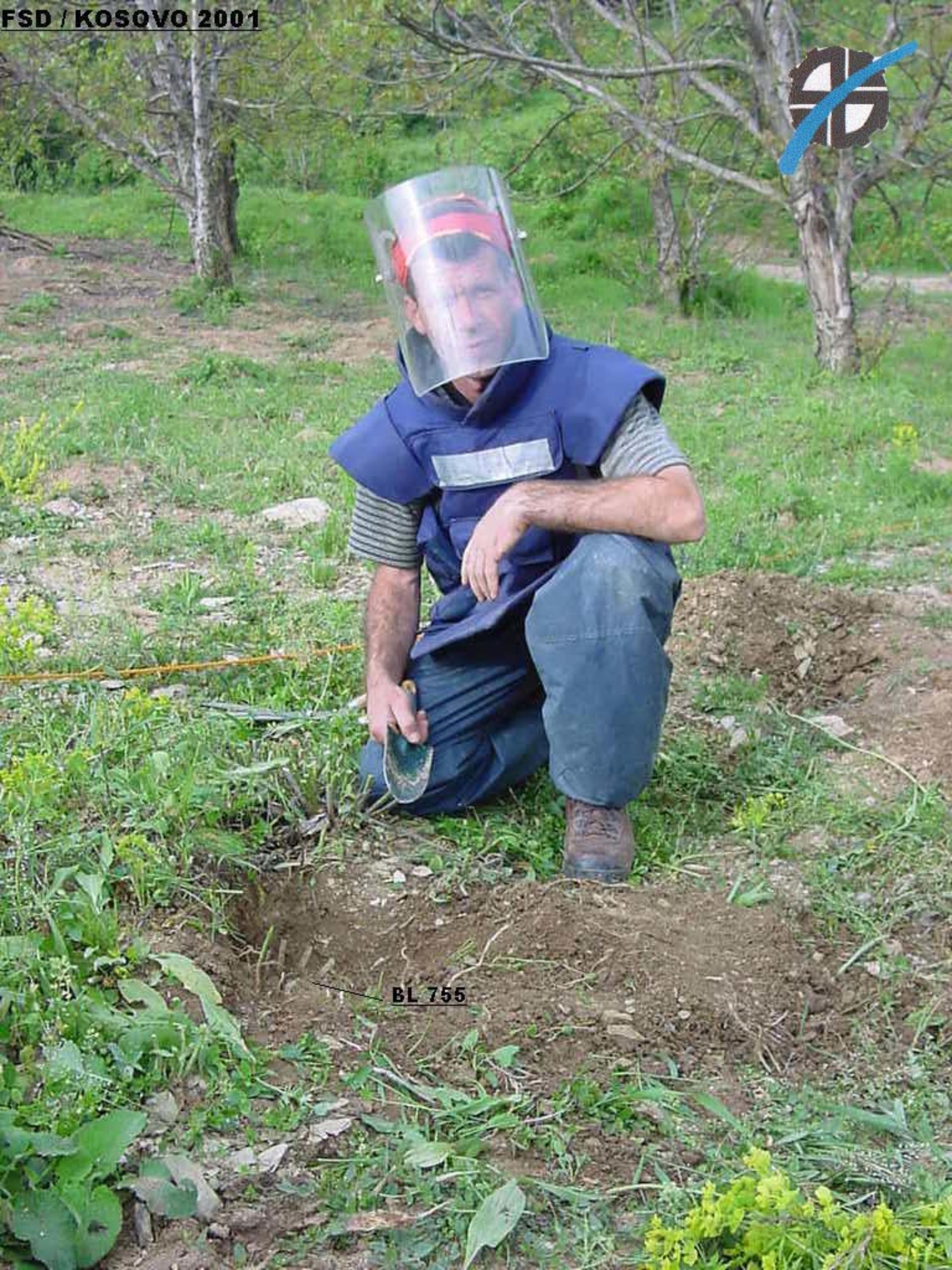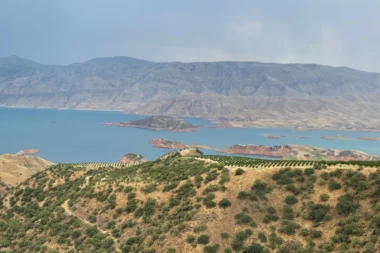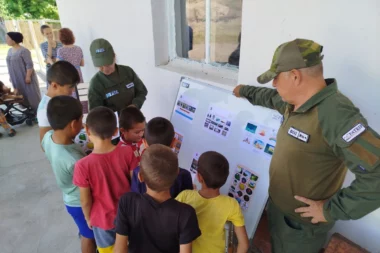We use audience measurement tools (such as Google Analytics 4 and Clarity), via Google Tag Manager, to understand how the website is used and to improve it. The data are used for statistical purposes only and are not used for targeted advertising.
Kosovo

Mine Action
Humanitarian demining
Between 2000 and 2001, FSD carried out humanitarian demining in Kosovo, clearing landmines and explosive remnants of war in critical areas. These efforts made it possible for displaced families to return safely to their villages.
Villages facing dangerous remnants of war
After the 1998–1999 conflict, many areas of Kosovo remained contaminated with landmines and unexploded ordnance, posing a daily threat to civilians. Numerous submunitions were scattered across several regions, making some areas extremely hazardous. This contamination blocked humanitarian access, complicated the reconstruction of vital infrastructure and delayed the return of displaced families.
Our impact in Kosovo
+700
anti-personnel mines and explosive remnants destroyed
+59,000
m2 of land made safe and returned to local communities
+350
emergency interventions carried out
Saving lives through rapid response operations
In 2000, at the request of the International Committee of the Red Cross (ICRC), FSD deployed three specialised teams to respond to urgent demining requests submitted by the organisation. The teams destroyed explosive devices in the most critical areas, helping to secure key locations, support the return of residents and enable the gradual resumption of essential services and activities.
From Bosnia to Ukraine
Discover our story
For nearly 30 years, FSD has been working to make land safer. Explore the key milestones of our humanitarian work since our first demining operation in 1998.
Latest news from FSD
View all
Beyond demining: preparing to hand over the reins
Faced with this reality, FSD — with the support of Switzerland — is working on two fronts: clearing land today,…
Humanitarian demining Prevention and risk education Ukraine

Tourist destinations still marked by the scars of war
In the world, nearly one in three countries remains contaminated by landmines and explosive remnants of war, particularly across much of South-East…
Landmines and explosive remnants Colombia Iraq Sri Lanka

On the Tajik-Kyrgyz border, scarred lands begin to heal
In the villages of Shurob and Chorkuh, in northern Tajikistan, the scars of civil war and regional tensions are still…
Recovery Humanitarian demining Prevention and risk education Tajikistan